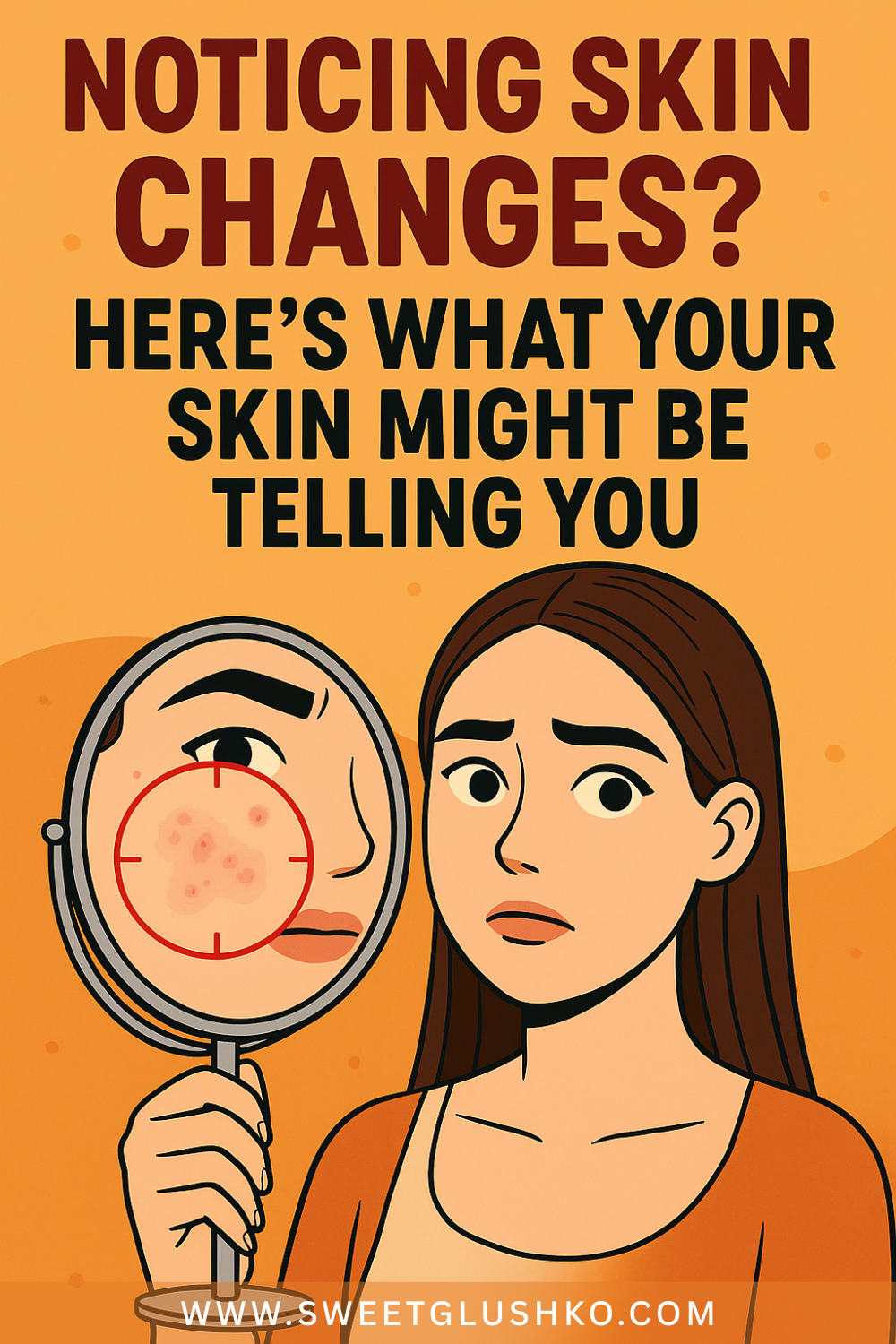Beauty comes from within, and so does health. Many skin problems that appear on your face are not just caused by poor skincare products, sun exposure, or unhealthy eating habits. Often, they are deeper warning signs that your body needs attention. Unfortunately, these signals are easy to overlook. If you’ve been brushing off facial skin issues and relying only on creams to fix them, it’s time to dig deeper and uncover the true cause. Paying attention now could help you avoid bigger health concerns later. With that in mind, let’s explore what different facial skin changes might reveal about your health.

Common Facial Signs That Could Point to Underlying Health Issues
Your face often tells a story about your overall health. While some skin changes are harmless, others may hint at deeper medical conditions. Paying attention to these signs can help you spot potential health concerns early. Here are some common facial symptoms you should never ignore.
1. Dark Circles
While genetics play a role, dark circles can also signal issues like lack of sleep, allergies, hormonal shifts, smoking, or even nutritional deficiencies. Although treating the underlying cause is important, using a cold compress can offer temporary relief.
2. Red Nose
A red nose can sometimes be caused by cold weather, but it may also result from expanded blood vessels triggered by allergies, a cold, or emotional stress. If the redness persists, it’s best to consult a healthcare professional.
3. Yellow Eyes and Skin
Yellowing of the eyes and skin often points to jaundice, a condition caused by the buildup of waste material in the body. Jaundice can also signal serious underlying issues like liver disease or viral infections, so seeking prompt medical advice is crucial.
4. Sudden Appearance of Moles
New moles or skin changes to existing ones are usually harmless, but sudden shifts in color, size, or shape should not be ignored. Regularly monitoring moles and consulting a doctor for any changes can help rule out more serious concerns.
5. Butterfly Rash
While many facial rashes are harmless reactions to cosmetics, weather, or allergies, a butterfly-shaped rash across the cheeks could indicate lupus. Since lupus is a serious autoimmune condition, a proper medical evaluation is essential.
6. Skin Peeling Around Nose and Mouth
Dry, peeling skin around the nose and mouth may suggest a lack of essential vitamins like A, C, B, or E. In addition to skin issues, vitamin deficiencies can cause symptoms such as fatigue and poor concentration, making dietary adjustments important.
7. Cold Sores
Cold sores typically develop around the lips due to the herpes simplex virus type 1. Although they usually heal on their own, antiviral ointments can help reduce discomfort and speed up the healing process.
8. Chapped Lips
Dry, cracked lips often occur during winter or after too much sun exposure. However, persistent chapped lips can sometimes be a reaction to medications or a sign of underlying conditions like Kawasaki disease, warranting further evaluation.
9. Excess Facial Hair
While heredity can cause facial hair in women, a sudden increase may point to polycystic ovary syndrome (PCOS). Since PCOS can affect fertility and hormone balance, early medical intervention is important for effective management.
10. Facial Hyperpigmentation
Dark patches on the cheeks or bridge of the nose may suggest melasma, a type of hyperpigmentation often worsened by sun exposure or hormonal changes during pregnancy. Dermatological treatments can help manage and lighten these spots.
11. Thinning Eyebrows or Lashes
If cosmetics are not to blame, thinning eyebrows or lashes could be linked to thyroid imbalances, especially hyperthyroidism. Other signs like dry skin or sudden weight gain often accompany this condition and should be discussed with a doctor.